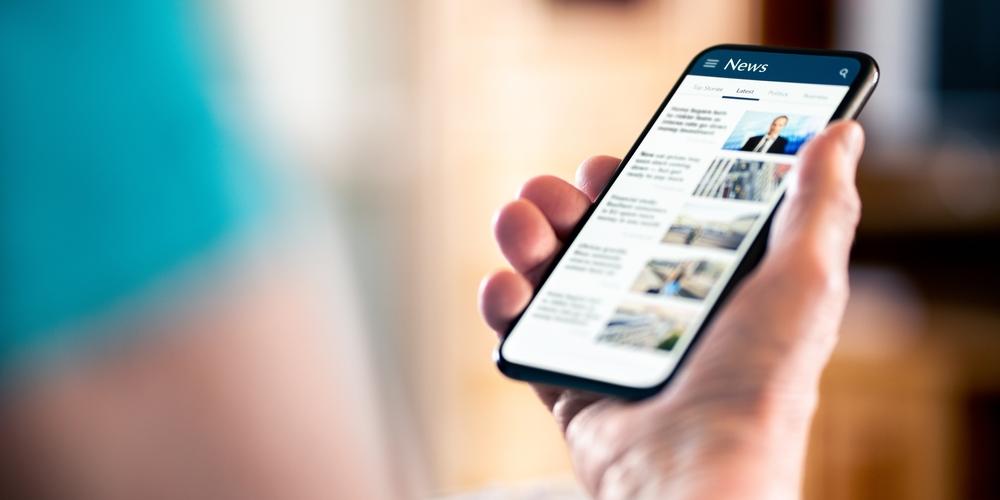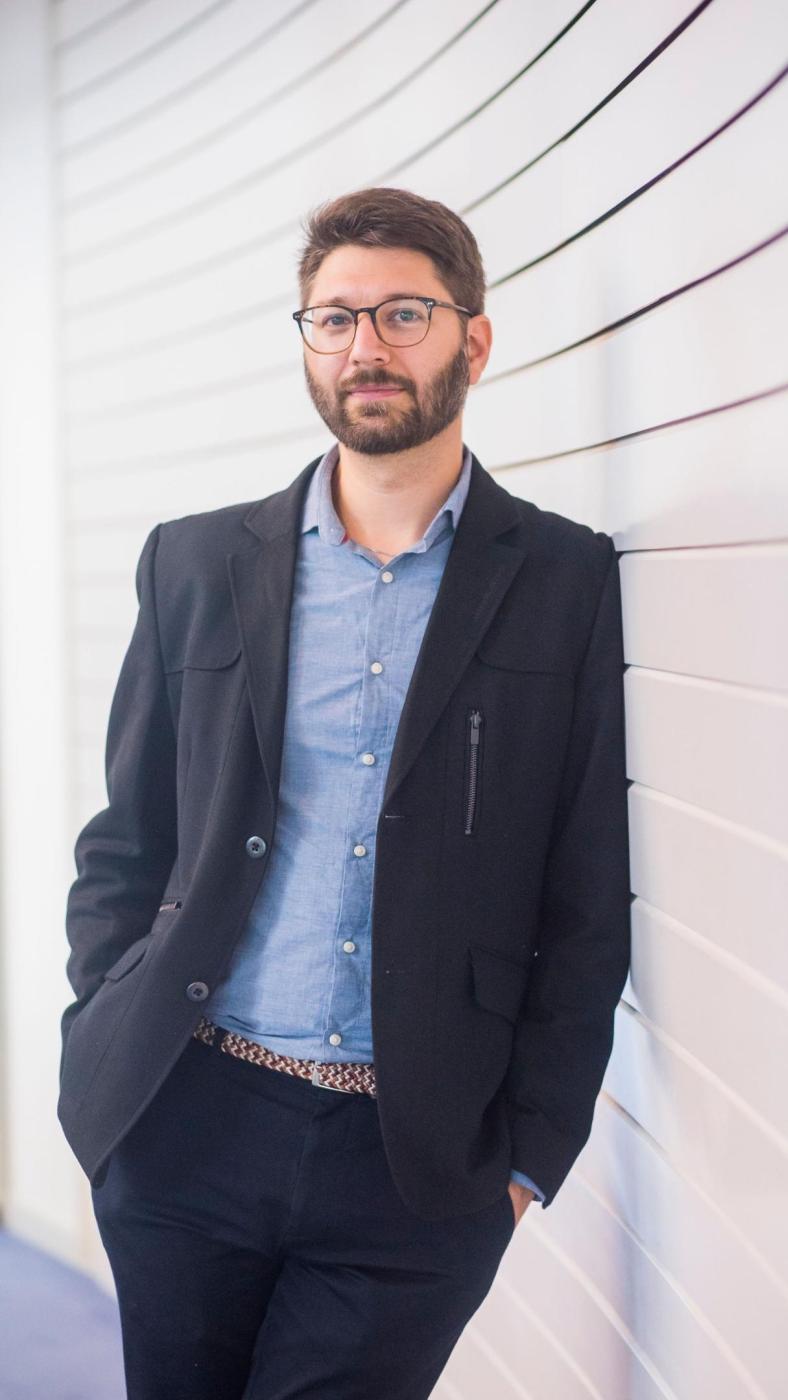
To what extent can media mislead you and trap you in an information bubble? And what is the impact of algorithms on what we see online? A clarifying conversation with Ike Picone, professor of Media and Journalism at the VUB. “In the future information landscape, journalistic media will play a more important role than ever before.”
How neutral is the news, both offline and online, in 2024?
Ike Picone: “The news has never been completely objective. Even a few decades ago, when there were only a few newspapers, and occasionally some news on TV, the reporting was biased. I would even argue that today, with greater diversity in available media, we receive more neutral news than, say, forty years ago, just after World War II. However, we must continue to question whether the media are neutral enough and whether this neutrality is under pressure from new technologies and societal shifts.”
Do these new technologies and their underlying algorithms increase the likelihood of ending up in an information bubble?
“That’s a valid concern. The large companies behind social and digital media had to find a solution to make the overwhelming flow of information manageable. They developed algorithms that select content based on people’s preferences. On its own, this is an interesting technology. But then the question arises: on what principles is this filtering based? It turns out that one of the main criteria is to keep people glued to their screens for as long as possible, primarily to secure advertising revenue. This approach has been scrutinised in numerous studies, documentaries, and even films like The Social Network, and it has certainly raised some alarm bells. For instance, the mobile phone ban in schools is a direct result of that debate. If we look at the content in these so-called ‘rabbit holes’, studies have shown that filter bubbles can indeed form on social media, but that these channels are often just part of a broader news diet that people consume. However, we should not forget that for many people, social media is the first and main channel to access news, and for some, it’s even their only news source.”
“I am quite certain that strong journalistic brands will continue to exist.”
So, can we break through the information bubble ourselves?
“It’s certainly a nuanced story. We live in a cross-media landscape, using multiple media outlets every day. For instance, you might be on Instagram but still follow VRT NWS. You could be browsing TikTok and still come across content from HLN. I remember a student once asking me: ‘Why would I subscribe to a single newspaper when I can follow all of them on Instagram?’ There have been studies in England that show Facebook users are exposed to more news outlets than those who don’t use Facebook. However, we must remain critical of social media and their algorithms, which are designed to maximise users' screen time by offering similar content to what has already been viewed or liked. In that sense, it’s interesting to look at the experiments by some public broadcasters that are considering whether their algorithms should focus on offering a diverse range of content from different channels and perspectives. Precisely because their public service remit is to provide a diversity of opinions. An interesting idea…”
Is being critical enough, or should the big tech companies be further regulated?
“For years, we allowed social media companies to grow with little or no intervention because they were seen as businesses whose primary goal was to bring people together and stimulate debates. It’s only later that it became clear they were primarily concerned with making money and claiming a dominant position. In Europe, efforts are now being made, such as through the Digital Services Act, to regulate these platforms by giving them a legal status with corresponding responsibilities. In the United States, some voices are even calling for Facebook, WhatsApp, and Instagram to be broken up because of the dangers of having one owner for all three. These are signs that policymakers worldwide are gradually realising that action is needed to break these companies’ monopolies.”

Do you have any advice on how to stay as well-informed as possible?
“A personalised news diet – the media you choose to consume – seems like a good guideline. Just like with the food pyramid, you know that it’s better to eat a carrot now and then, rather than fries every day. The same goes for a news diet. For one person, it might be heavily political; for another, it might be more light and entertaining or even niche. Whatever your news diet, it’s healthy to consume a variety of sources and opinions. If you’re a young person using social media to stay updated on your favourite music group, try to also follow a well-known journalist or politician. Or if you closely follow a political party, why not check out the social media of a party you’re less keen on? While we wait for algorithms to become more diverse, we, as citizens, can take responsibility and diversify our news diet ourselves. You have far more control than you might think.”
And what about the allure of dopamine hits?
“It’s important to step back from constant stimulation every now and then – put your phone away occasionally and read a full article instead of just the highlights. People don’t need to feel powerless. However, it’s worth emphasising that the responsibility doesn’t lie solely with us. Social media companies also need to take more responsibility. In Europe, they are already required to record when they moderate or remove certain content... The commission, as well as journalists and citizens, can request that information. There is a movement towards greater transparency, but there is still much work to be done.”
“Facebook has yet to adjust its algorithms to become more diverse.”
How do we deal with fake news and misinformation across different media?
“My short answer and advice is: get a newspaper subscription.” (laughs) “I still think: while political campaigns, advertising, and spin have been used for decades to try to persuade people, journalism has been around just as long in its more reliable form. A group that prides itself on checking and double-checking facts. If you step away from social media and read or watch traditional media, you’ve already taken a big step towards verifying current events. Most people understand this. But there is also a small, loud group that no longer trusts ‘the news’. They are often separated from the broader public sphere and chart their own course. We must continue to monitor them, but we also need to avoid moral panic. From the history of communication technologies, we know it wouldn’t be the first time that a new technology caused panic. Moreover, panic prevents us from addressing the root of the problem. Because the more you focus on fake news, the less you focus on the fact that the algorithm itself is so disruptive. To this day, Facebook has had to take many actions – from monitoring content to removing ‘inauthentic behaviour’ – but they have yet to be forced to adjust their algorithms to be more diverse. In short, the core issue remains unaddressed.”
How do you see media diversity evolving in the future?
“The cross-media user is here to stay. People have a range of tools for gathering news that I think they will be able to personalise even more. ‘For this information, I follow an influencer; for that, I check the fan club; for something else, my WhatsApp group with the neighbours; and I enjoy reading the newspaper for other topics.’ You’ll have a specific channel for every kind of information depending on your preferences and needs. Within that, journalism faces a challenge. As long as social media are left untouched, their business model will remain under pressure. The number of people willing to pay for online news is stagnating. In the current system, I think we’ll eventually have fewer brands, but I’m quite certain that strong journalistic brands will continue to exist. In my crystal ball, I dare to hope that the more the online world resembles the wild west, the more people will be willing to pay for journalistic media that follow a certain code of ethics – or at least consult them when we, as a society, pay for them through public funds. Normally, journalistic media will have a more important role than ever before in the future information landscape.” *
Ike Picone
Ike Picone is a professor of media and journalism at the VUB. He is part of the international team working on the annual Digital News Report from the Reuters Institute for the Study of Journalism at the University of Oxford, and he leads the Flemish Knowledge Centre for Media Research.
* "This is a machine translation. We apologise for any inaccuracies."